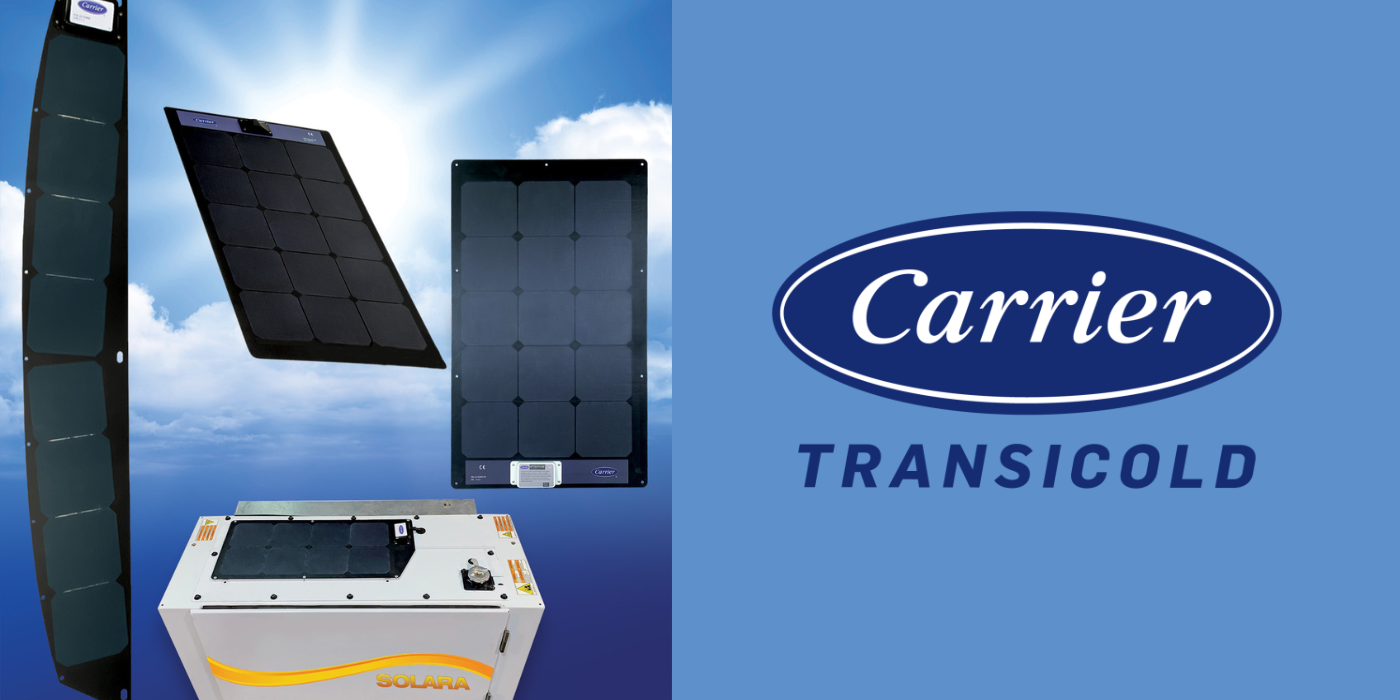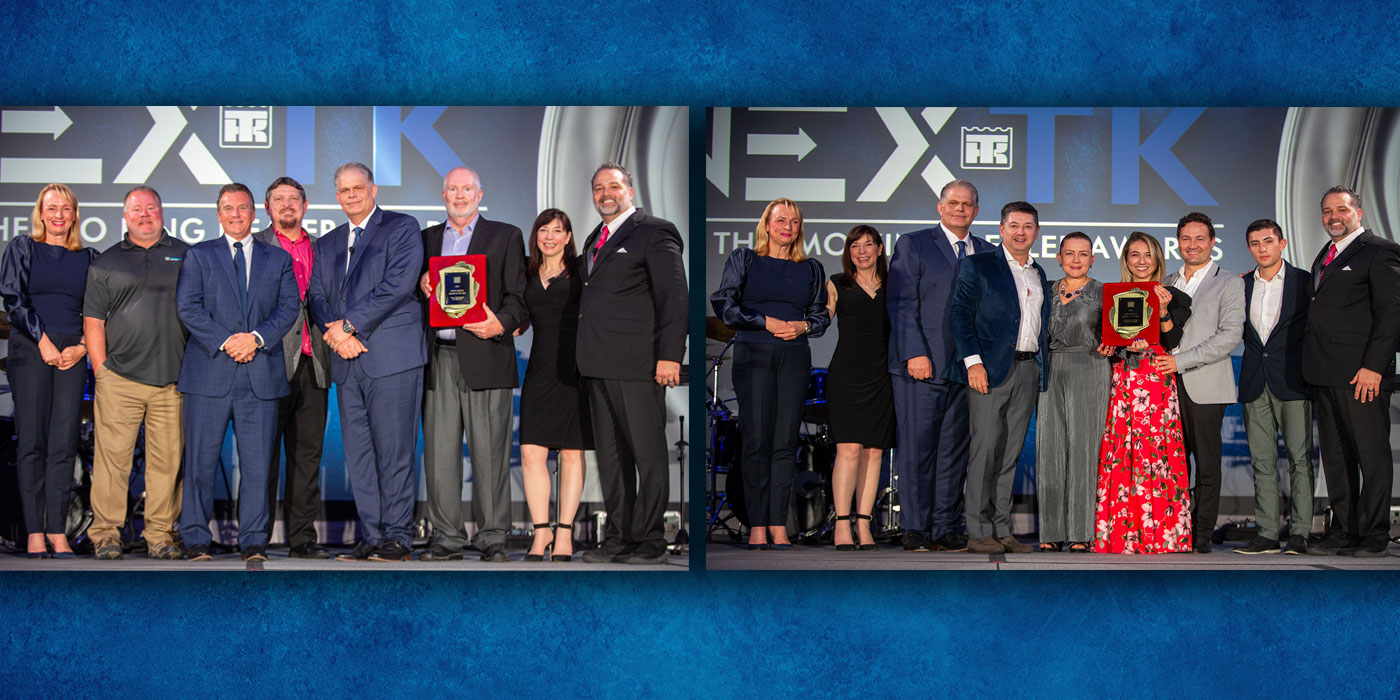d chain’s integrity from the time products enter your possession until customer delivery.
Since the early 1940s when the first refrigerated units hit the roads, the trucking industry has done a remarkable job of meeting the challenges involved with transporting food, pharmaceuticals, chemicals and other products that require refrigeration. Those challenges continue to push the industry to develop better, more efficient and safer technologies.
According to Christian Schenk, vice president of product marketing, Xata Corp., “Food now travels further than ever from farm to fork. As local farms and main street restaurants have given way to corporate entities and national chains, food products have gone from traveling across town to traveling across the country. Much of that food must be properly refrigerated or it becomes susceptible to bacteria. Bagged salad, as an example, will go bad five days earlier if transported at 32˚ F rather than at 42˚ F. Even just a handful of consumers shopping elsewhere because the lettuce looks wilted can negatively affect a company’s bottom line. And when you take into account the number of stores in a large, national chain, the losses can quickly add up to millions of dollars.”
According to the Centers for Disease Control and Prevention, more than 76 million Americans get sick each year from eating spoiled, contaminated or adulterated products. Improperly transported foods are a serious risk to the public, and liability costs can cause even the most robust bottom-lines to go from black to red in a heartbeat. As Warren Buffet once said, “It takes 20 years to build a reputation and five minutes to destroy it.”
Because there are no second chances when it comes to the quality of products that must be properly refrigerated, many producers and retailers are now demanding that the fleets that transport their goods—whether refrigerated or frozen—provide real-time location and proof-of-temperature data. The solution is simple: your onboard system should integrate with a comprehensive reefer management system.
It’s a given that such a system should ensure temperature compliance, but there’s so much more an integrated reefer management system can do. The right combination of onboard and reefer solutions, a combination that monitors both driver and reefer data, can generate a return on investment in as little as one year by providing tools that make it easy to analyze and improve every aspect of a fleet’s—and its reefers’—performance.
One example is “a full-featured reefer management solution integrated with an enterprise-wide, onboard solution such as XataNet,” Schenk says. He points out that it monitors temperature, door status and trailer locations. In addition, it monitors speeding, idling and hard braking, giving fleet managers valuable information they can use to establish performance benchmarks and determine which drivers need additional training. The system also helps fleet managers monitor fuel consumption, assess tire wear and schedule maintenance.
Systems, like those offered by Xata, can even get instant alerts via e-mail, phone or pager, so you’ll always know when a temperature threshold has been exceeded, if a door is open when it’s supposed to be closed and if a reefer is somewhere other than where it’s supposed to be, Schenk noted. Smart reefer management can even help reduce employee theft. Although hard to quantify, one recent national survey showed that employee theft cost companies $18.7 billion in the 12 months ended June 2009. And the U.S. Chamber of Commerce estimates that 75% of employees steal from their employers at least once.
By helping fleets collect, view and share real-time, 360˚ data, reefer management systems integrated with onboard solutions make it easy for fleets to increase supply chain visibility and reduce costs, increase safety and compliance, and improve customer satisfaction.
Reduce costs
According to the U.S. Department of Agriculture, nearly 100 billion pounds of edible food is lost each year, and damage to perishable food accounts for 56% of all product shrinkage. By closely monitoring temperature data—by sensor and stop—fleets can minimize product waste.
Fleets also can use the data they collect to reduce fuel costs. For instance, there’s a high correlation between idle time and MPG—cutting a driver’s idle time in half increases his MPG from 5.8 to 6.3. Reducing speeding and hard braking also increases MPG. By monitoring and proactively addressing issues such as these, fleet managers can quickly improve their bottom line.
Increase safety and compliance
Knowing the exact temperature of the products you ship and the exact location of your reefers keeps products safe and ensures compliance with government and industry regulations, including the Public Health Security and Bioterroism Preparedness and Response Act of 2002, which was passed after the terrorist attacks on Sept. 11 made us realize just how vulnerable we are.
With outbreaks of E. coli and other food-borne illnesses on the rise, there are likely to be new rules governing the packing and transporting of goods. There is even some speculation that future regulations may require proof-of-temperature-control throughout the cold chain—for food, as well as pharmaceuticals, chemicals and other materials that can become dangerous or lose their effectiveness if not kept at the proper temperature, according to Schenk.
Improve customer satisfaction
Customers are increasingly asking the fleets that ship their goods one all-important question: “Were my products kept at the proper temperature?” A reefer management system makes it easy to say, “Yes, they were.” Such a system can even provide charts and graphs that show temperature, by sensor, the entire time the products are in your possession.
So if you’re worried about spoiled products eroding your profits, or worse, damaging your reputation, Schenk says, “Now is the ideal time to consider implementing an integrated reefer management solution. Not only will it strengthen your cold chain, it will deliver an impressive return on your investment.”



